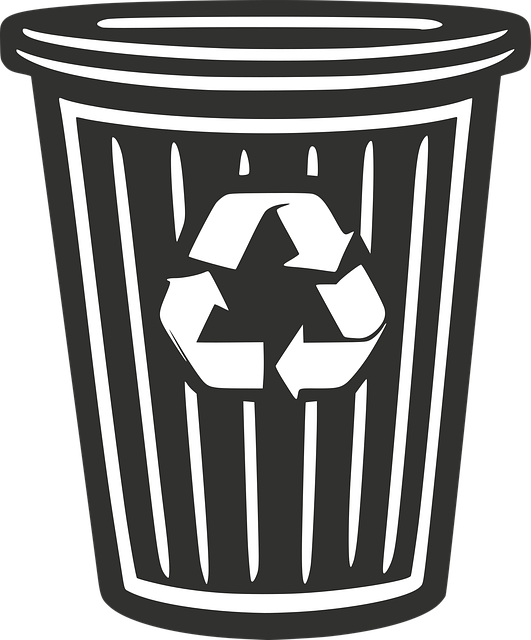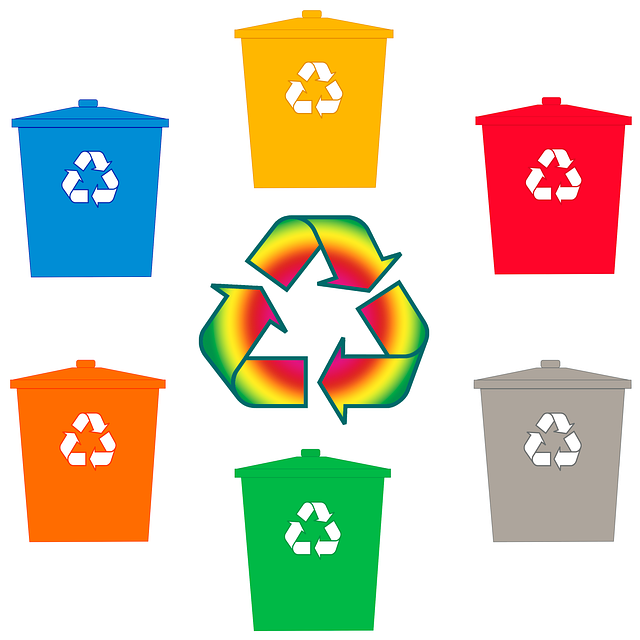Boston and New York City face substantial e-waste challenges due to dense populations and tech economies, generating hazardous materials. Boston has made progress in e-recycling for startups and green IT disposal, while NYC's diverse tech sector offers opportunities for innovative recycling programs. Initiatives like data center recycling and cyber trash collection are making strides towards mitigating environmental impacts. Green solutions, including advanced recycling and upcycling, promote sustainable e-waste management, with community engagement crucial for success. The future focuses on extended hours, advanced technologies, and a circular economy, ensuring a greener approach to Boston NY e-waste recycling.
In Boston and New York, navigating the growing mountain of electronic waste (e-waste) has become a pressing environmental concern. Improper disposal methods can lead to significant ecological and health hazards due to the toxic materials present in e-waste. This article explores green solutions for e-waste management in these urban centers, focusing on recycling initiatives, innovative techniques, community engagement, and future trends that promote eco-friendly practices. Discover how Boston NY e-waste recycling is revolutionizing waste management while safeguarding our environment.
- Understanding E-Waste in Boston and NY
- The Impact of Improper Disposal Methods
- Green Recycling Solutions for Electronics
- Innovative Techniques in E-Waste Management
- Community Engagement for Sustainable Disposal
- Future Trends in Eco-Friendly Recycling
Understanding E-Waste in Boston and NY

In Boston and New York City, the challenge of electronic waste (e-waste) management is significant due to their dense populations and tech-driven economies. With a high concentration of businesses and residents relying heavily on technology, the volume of e-waste generated in both cities is substantial. E-waste recycling in Boston has become a pressing issue as the city navigates the proper disposal of obsolete electronics from households and enterprises. Similarly, NYC tech waste reduction strategies are essential to mitigating the environmental impact of rapidly evolving digital technologies.
Boston e-recycling for startups and green IT disposal solutions have gained traction among forward-thinking organizations aiming to minimize their electronic footprint. These initiatives not only support sustainable practices but also help to divert harmful materials from landfills. In contrast, while New York City faces similar challenges, its diverse tech sector also presents opportunities for innovative recycling programs tailored to specific e-waste components and materials.
The Impact of Improper Disposal Methods

The improper disposal of electronic waste (e-waste) poses significant environmental and health risks in both Boston and New York City (NYC). E-waste, which includes discarded electronics like computers, smartphones, and appliances, contains hazardous materials such as lead, mercury, and cadmium. When not handled correctly, these toxic substances can contaminate soil, groundwater, and air, leading to severe ecological damage. In densely populated cities like Boston and NYC, where e-waste generation is high due to the tech-savvy population and frequent device upgrades, improper disposal methods can have devastating consequences for local ecosystems and communities.
Manhattan, with its bustling data centers and numerous offices, contributes significantly to the city’s e-waste stream. The Manhattan data center e-waste reduction initiatives and NYC computer recycling programs are essential steps towards mitigating these impacts. Effective e-waste management involves responsible recycling practices that safely separate and process valuable materials while ensuring hazardous components are disposed of properly. By embracing such programs, residents and businesses can play a crucial role in preserving the environment and fostering a sustainable future for both Boston and NYC.
Green Recycling Solutions for Electronics

In an era where technology advances at a rapid pace, the accumulation of electronic waste or e-waste has become a significant environmental concern, especially in urban centers like Boston and New York City. Green recycling solutions for electronics play a pivotal role in mitigating this issue. Initiatives such as boston cyber trash collection have gained traction, offering environmentally conscious residents and businesses an effective way to dispose of old devices responsibly. These programs not only promote sustainable practices but also ensure that valuable materials are recovered from e-waste, reducing the demand for mining raw resources.
Computer recycling services in the Boston area and NYC have become more sophisticated, employing eco-friendly techniques to disassemble and process electronic components. This process allows for the separation of metals, plastics, and other materials that can be reused or recycled, minimizing the environmental impact associated with e-waste disposal. In light of these efforts, nyc electronic waste recycling statistics indicate a growing trend towards sustainable management of electronic trash, setting an example for other metropolitan areas to follow.
Innovative Techniques in E-Waste Management

The landscape of e-waste management is evolving rapidly with innovative techniques gaining traction across cities like Boston and New York. In this regard, Boston tech companies are leading the charge in developing sustainable solutions for electronic waste disposal. From advanced recycling processes to creative upcycling methods, these pioneers are transforming the way we handle our digital debris. One promising approach involves breaking down e-waste into its fundamental components, allowing for the recovery of precious metals and other materials that can be reused in manufacturing.
Additionally, New York City small businesses are embracing eco-friendly practices by utilizing specialized electronics recycling services. Manhattan, for instance, boasts several e-recycling drop-off points where residents and businesses can responsibly dispose of their outdated gadgets. These initiatives not only mitigate the environmental impact of electronic waste but also contribute to a circular economy by reclaiming valuable resources from discarded devices. Such efforts are crucial in ensuring that our digital advancements do not come at the cost of our planet’s health.
Community Engagement for Sustainable Disposal

Community engagement plays a pivotal role in fostering sustainable e-waste disposal practices across cities like Boston and NY. By involving local residents, businesses, and organizations, these urban centers can create robust and efficient recycling programs for electronic waste (e-waste). The process begins with awareness campaigns that educate citizens on the environmental impact of improper e-waste disposal. Workshops and training sessions can empower community members to recognize and properly categorize various types of electronic devices, ensuring they reach authorized recycling facilities.
In Boston, initiatives such as “Boston Green IT Disposal Solutions” have gained traction by offering convenient drop-off points and scheduling hazardous waste collection events. This approach encourages responsible participation while promoting the city’s commitment to reducing its environmental footprint. The successful implementation of these programs not only facilitates the safe recycling of materials like plastics, metals, and glass from e-waste but also generates certificates (Boston electronics recycling certificate) that certify the proper disposal, enhancing transparency and trust among participants.
Future Trends in Eco-Friendly Recycling

As we move forward, the future of e-waste disposal is looking increasingly green and innovative. Boston and New York City are at the forefront of this eco-friendly revolution, with advanced recycling techniques gaining traction. One notable trend is the shift towards more comprehensive and accessible e-waste recycling programs. In cities like Boston, efforts have been focused on creating robust networks of electronic recycling centers that stay open late to accommodate working individuals and businesses. These centers employ cutting-edge technologies to safely break down various types of electronic waste, ensuring maximum resource recovery.
Moreover, the concept of upcycling and repurposing is gaining popularity. NYC tech waste reduction strategies often involve transforming discarded electronics into new products, reducing the demand for virgin materials. From transforming old computers into educational tools to upcycling smartphone components for home automation, these creative approaches not only divert waste from landfills but also contribute to a circular economy. With continued investment in research and development, future e-waste recycling practices in Boston NY may involve even more sophisticated methods, further minimizing the environmental impact of electronic device disposal.
In conclusion, addressing the growing challenge of e-waste in urban centers like Boston and New York requires a multifaceted approach. By understanding the magnitude of the issue, recognizing the adverse impacts of improper disposal, and adopting green recycling solutions, these cities can lead the way in sustainable e-waste management. Innovative techniques and community engagement play pivotal roles in this transformation. As we look towards the future, embracing emerging eco-friendly recycling methods will be crucial to ensuring a healthier environment for generations to come, fostering a harmonious relationship between technology and nature in Boston NY e-waste recycling efforts.














